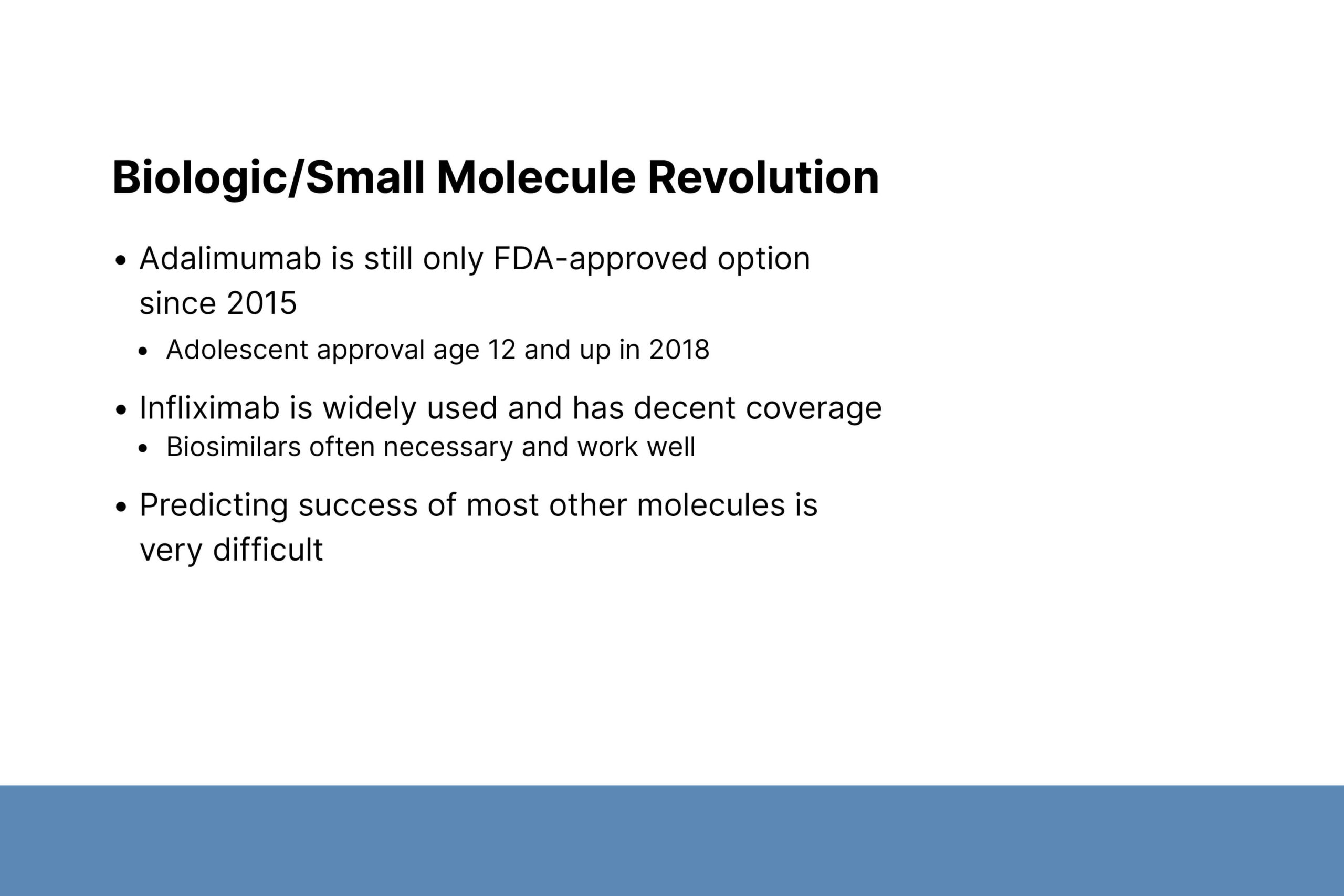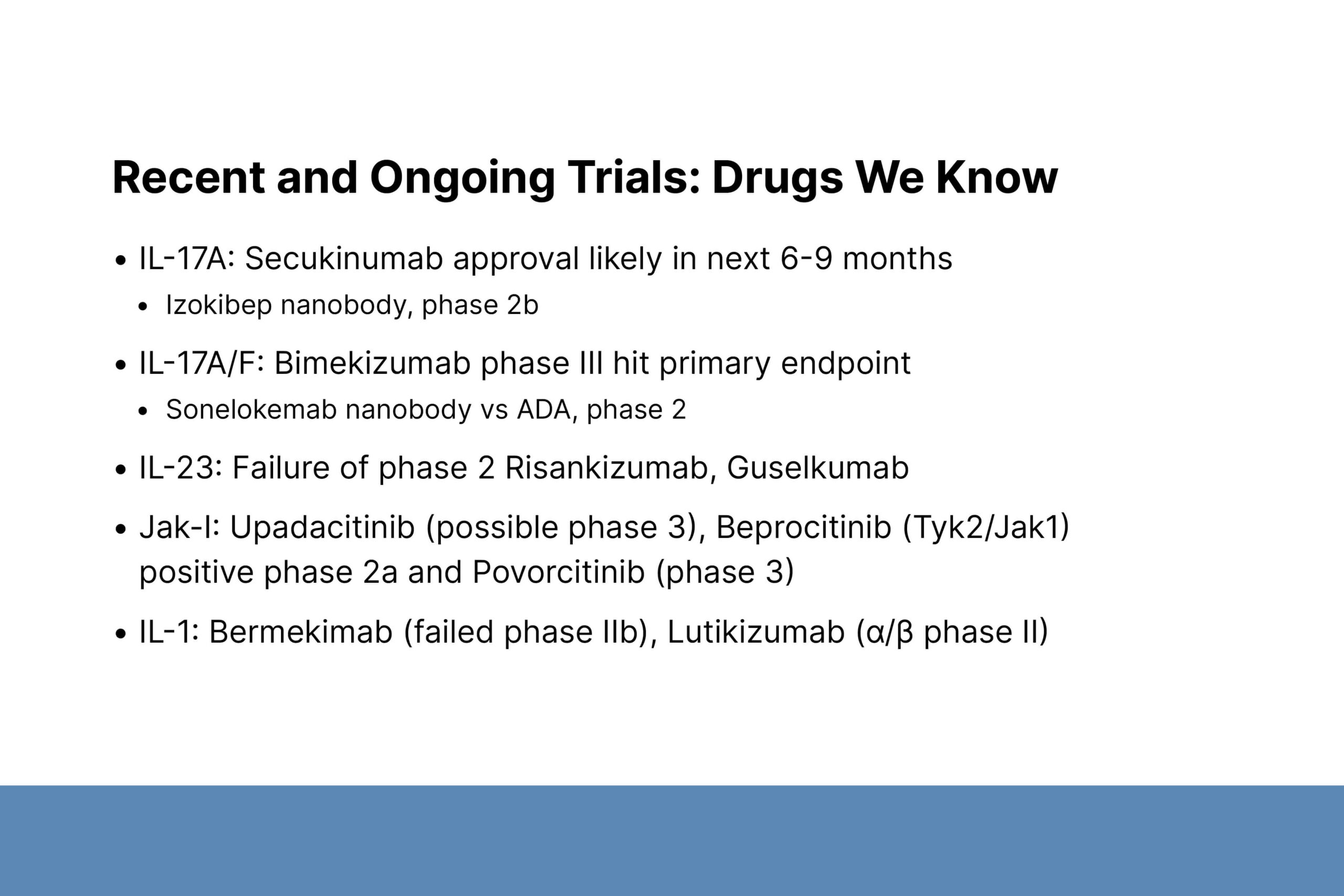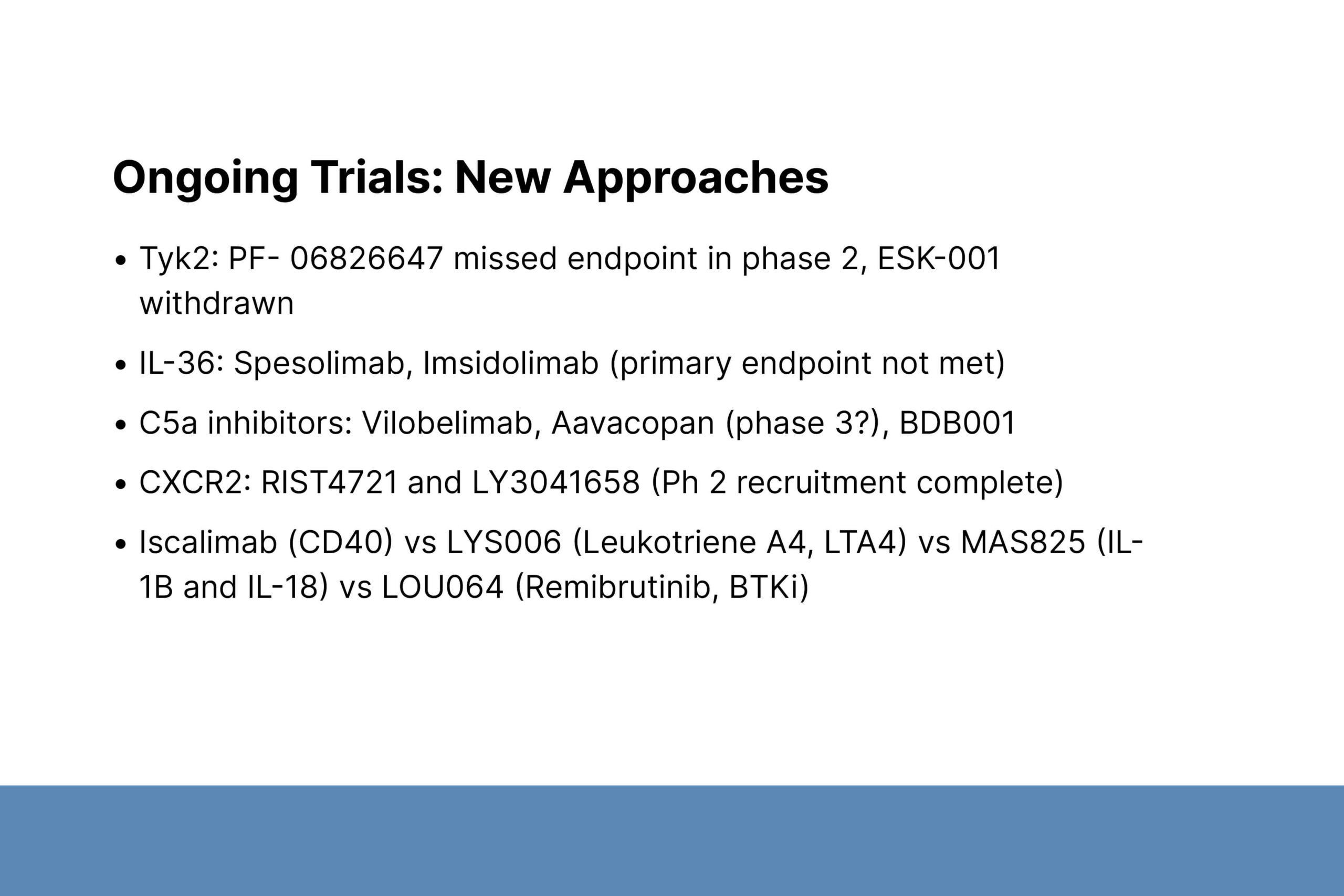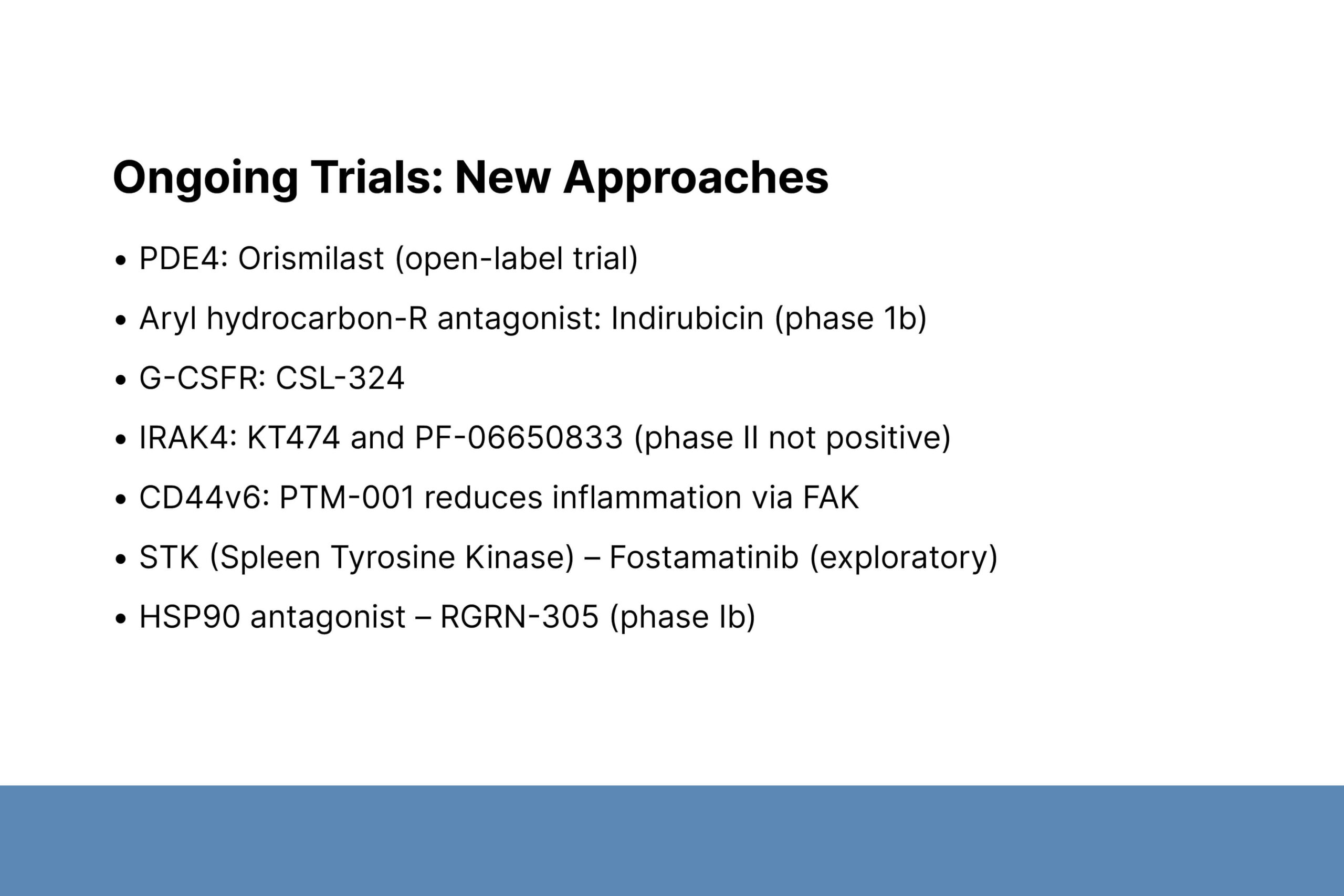Evolving Treatment of HS
Christopher J. Sayed, MD
Associate Professor of Dermatology, University of North Carolina at Chapel Hill
December 2023
Dr. Sayed presented an overview of treatment options for hidradenitis suppurativa (HS) and reviewed ongoing clinical trials. The landscape of treatment for HS is rapidly changing. Dr. Sayed predicts that many more treatment options will become available in the next 5–10 years.
First, Dr. Sayed described current HS treatment options, including adalimumab, infliximab, golimumab, and apremilast. Adalimumab, a tumor necrosis factor inhibitor (TNFi), is the only FDA-approved treatment for HS. Although some patients respond to treatment, many do not, and different treatment options are needed. Infliximab, a monoclonal antibody (mAb) TNFi, is an option for patients who show minimal improvement on other TNFis. Dr. Sayed recommended a starting dose of 10 mg/kg; 50% of patients will require higher doses. Maintenance dosing range is 4–8 weeks. Important considerations include the cost and travel time to the clinic for infusions. Other treatment options include golimumab (TNFi) and apremilast (phosphodiesterase type-4 inhibitor), an oral option for patients who cannot tolerate injections.
Next, Dr. Sayed described >12 compounds currently in clinical trials. Therapeutic targets include interleukin- (IL-) 17A, JAK1, and TYK2. Dr. Sayed anticipates that clinical efficacy will be demonstrated first for the IL-17 inhibitors secukinumab and brodalumab. Secukinumab, a mAb against IL-17A, has been evaluated in the largest number of clinical trials and will likely be approved for HS in the next 6–9 months. Brodalumab may have additional therapeutic benefit because it blocks the IL-17 receptor.
C5a is another pathway under consideration for future HS treatment. C5a acts as a signal flare for the immune system during complement activation. C5a inhibitors currently in clinical development include vilobelimab and avacopan.
Measuring HS disease severity is challenging in clinical trials. Thus, some studies report equal improvement in treatment and placebo groups. Due to high placebo response rates, these treatment candidates may not undergo further clinical development. Dr. Sayed believes some of these treatments are missed opportunities.
Finally, Dr. Sayed discussed the role of topical therapy and surgery for HS management. Even with improved therapeutic options, surgery still will be necessary for patients with advanced disease. It is important to build bridges with surgical colleagues for surgery to be more available.





